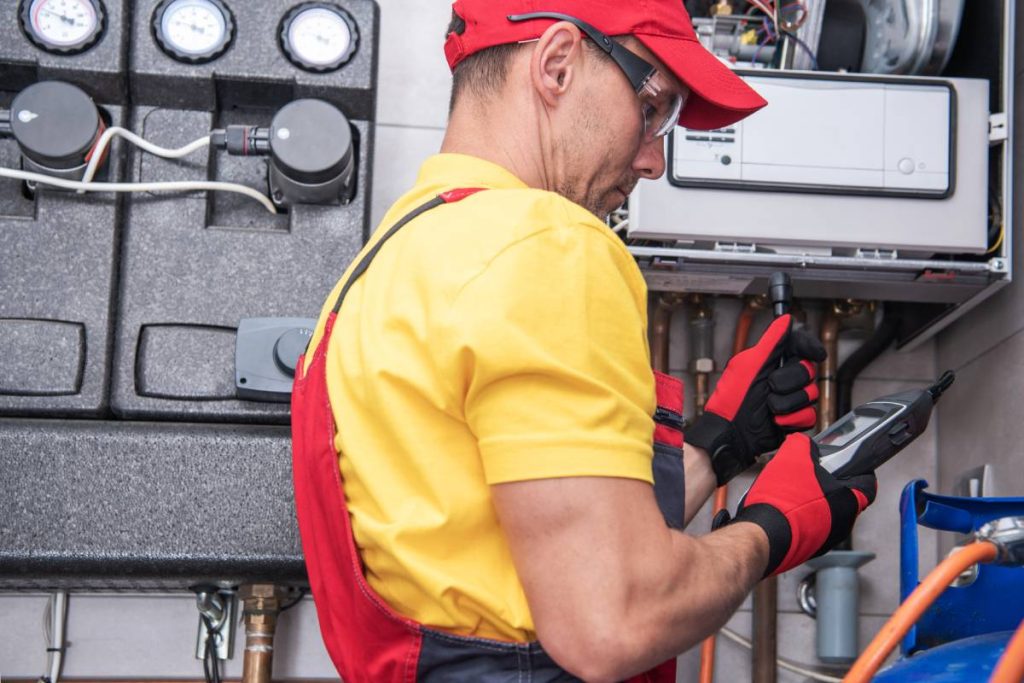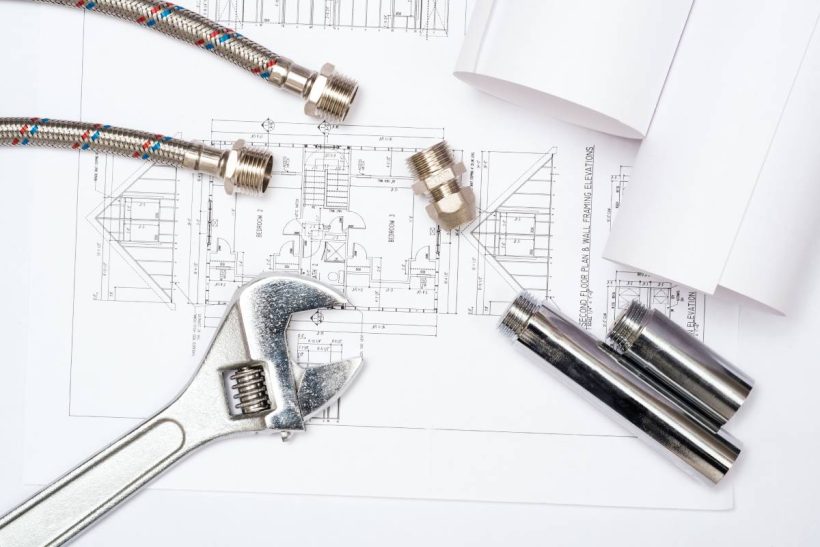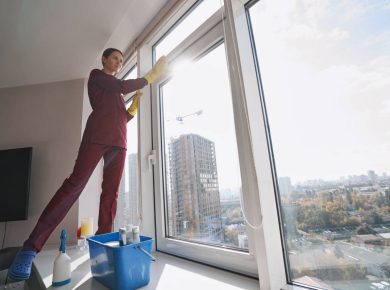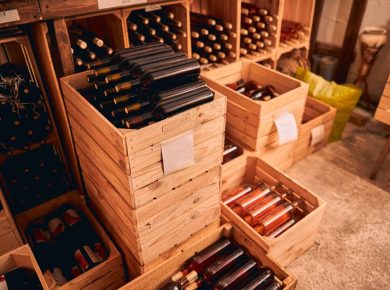Mechanical plumbing involves handling the plumbing aspects of air-conditioning, heating, and ventilation systems, primarily in buildings with machinery like elevators and medical gas equipment.
What is the mechanical plumbing’s scope of work?
Mechanical plumbing involves a specialized branch of plumbing that focuses on the installation, maintenance, and repair of mechanical systems within buildings. This field is crucial for ensuring the proper functioning of various systems that contribute to the comfort, safety, and functionality of residential, commercial, and industrial structures.

The scope of work for mechanical plumbers encompasses several key areas:
- Heating Systems: Mechanical plumbers are responsible for installing, maintaining, and repairing heating systems. This includes boilers, radiators, underfloor heating, and other components that contribute to the effective heating of buildings.
- Ventilation Systems: Mechanical plumbers play a vital role in the installation and upkeep of ventilation systems. This involves ensuring proper air circulation, preventing the buildup of pollutants, and maintaining indoor air quality. Ventilation systems are crucial for both comfort and health within enclosed spaces.
- Air Conditioning (HVAC) Systems: HVAC systems are a core component of mechanical plumbing. Mechanical plumbers install and service air conditioning units, including ductwork, refrigeration systems, and controls. Properly functioning HVAC systems are essential for maintaining comfortable temperatures in buildings.
- Refrigeration Systems: In addition to air conditioning, mechanical plumbers may be involved in the installation and maintenance of refrigeration systems. This is particularly relevant in commercial and industrial settings where refrigeration is essential for food storage and various industrial processes.
- Plumbing Systems Integration: Mechanical plumbers often integrate their work with traditional plumbing systems. They may be involved in connecting plumbing systems to mechanical components, such as boilers, water heaters, and swimming pool pumps, ensuring seamless operation and efficiency.
- Energy Efficiency and Sustainability: Modern mechanical plumbers are increasingly focused on incorporating energy-efficient and sustainable practices into their work. This may include installing energy-efficient HVAC systems, utilizing renewable energy sources, and implementing water conservation measures.
- Preventive Maintenance: Mechanical plumbers are proactive in conducting preventive maintenance to identify and address potential issues before they escalate. This involves inspecting and testing systems regularly to ensure optimal performance and longevity.
- Emergency Repairs: When mechanical systems fail or encounter issues, mechanical plumbers are called upon to provide emergency repairs. This can include addressing heating failures, air conditioning breakdowns, or other urgent issues that affect the comfort and safety of occupants.
- Compliance and Regulations: Mechanical plumbers must adhere to building codes, regulations, and safety standards. They are responsible for ensuring that their work meets the required standards, obtaining necessary permits, and complying with industry guidelines.
- Collaboration with Other Trades: Mechanical plumbers often collaborate with professionals from other trades, such as electricians and general contractors, to ensure the seamless integration of mechanical systems within a building.
In summary, the scope of work for mechanical plumbers is diverse and extends beyond traditional plumbing to encompass the installation, maintenance, and repair of various mechanical systems essential for the efficient operation of buildings. Their expertise contributes significantly to the comfort, safety, and sustainability of both residential and commercial spaces.

How to recognize a reliable mechanical plumber?
A dependable mechanical plumber has the necessary education certification and occupational license at both the local and national levels. To obtain education certification, they must complete course units covering plumbing, as well as mandatory units on draining, sanitary practices, and gas fitting.
In Australia, mechanical plumbers can obtain various professional licenses. The most crucial one is granted by the Australian government under trade recognition, while others are valid only within specific states or territories. Additionally, being a registered member of your local master plumber’s association is a positive indicator.
A trustworthy mechanical plumber is well-versed in Australian plumbing regulations. These regulations encompass the plumbing acts and regulations of states and territories. They outline the required licenses, and accreditations, and specify the types of jobs necessitating a plumbing permit. The plumbing code, included in these regulations, provides detailed instructions on installing drainage systems and other plumbing components in buildings.
Lastly, a reliable mechanical plumber consistently meets safety and competence standards. This means they prioritize working safely when on ladders or elevated platforms.
How much do mechanical plumbers make in Australia?
In Australia, the earnings of mechanical plumbers can vary based on factors such as experience, location, and qualifications. Mechanical plumbers play a crucial role in installing, maintaining, and repairing mechanical systems, such as heating, ventilation, and air conditioning (HVAC) systems.
Here’s the overview of the salary landscape for mechanical plumbers in Australia.
Experience
One of the primary factors influencing the income of mechanical plumbers is their level of experience. Entry-level plumbers may earn a lower salary compared to those with several years of hands-on experience in the field. As mechanical plumbers gain expertise and develop a solid track record, their earning potential tends to increase.
Location
The geographical location within Australia significantly impacts the salary of mechanical plumbers. Cities and regions with a high demand for skilled tradespeople often offer higher salaries to attract and retain talent. Metropolitan areas, where the cost of living is generally higher, tend to have higher average salaries for mechanical plumbers compared to rural areas.

Qualifications and Training
Having relevant qualifications and certifications is crucial for mechanical plumbers. Individuals with advanced certifications or specialized training in areas such as HVAC systems may command higher salaries. Ongoing professional development and staying up-to-date with industry trends can contribute to career advancement and increased earning potential.
Industry Demand
The demand for mechanical plumbers in specific industries can impact their earnings. For instance, mechanical plumbers working in sectors with high demand, such as commercial construction or industrial projects, may receive higher salaries than those in less busy sectors.
Union Membership
Many mechanical plumbers in Australia are members of trade unions, which negotiate and advocate for fair wages and working conditions. Unionized plumbers may benefit from collective bargaining agreements that set minimum salary standards, providing a level of financial security.
Average Salary Range
The average annual salary for mechanical plumbers in Australia ranges from AUD 85,000 to $100,000. However, it’s essential to note that these figures can vary based on the factors mentioned above.
In conclusion
The salary of mechanical plumbers in Australia is influenced by various factors, including experience, location, qualifications, industry demand, and union membership. Individuals entering the field can enhance their earning potential through gaining experience, obtaining relevant certifications, and staying informed about industry developments.
Additionally, considering the geographical location and industry demand can help mechanical plumbers make informed decisions about their career paths. Keep in mind that salary information may change over time, so it’s advisable to consult updated sources for the most current figures.










